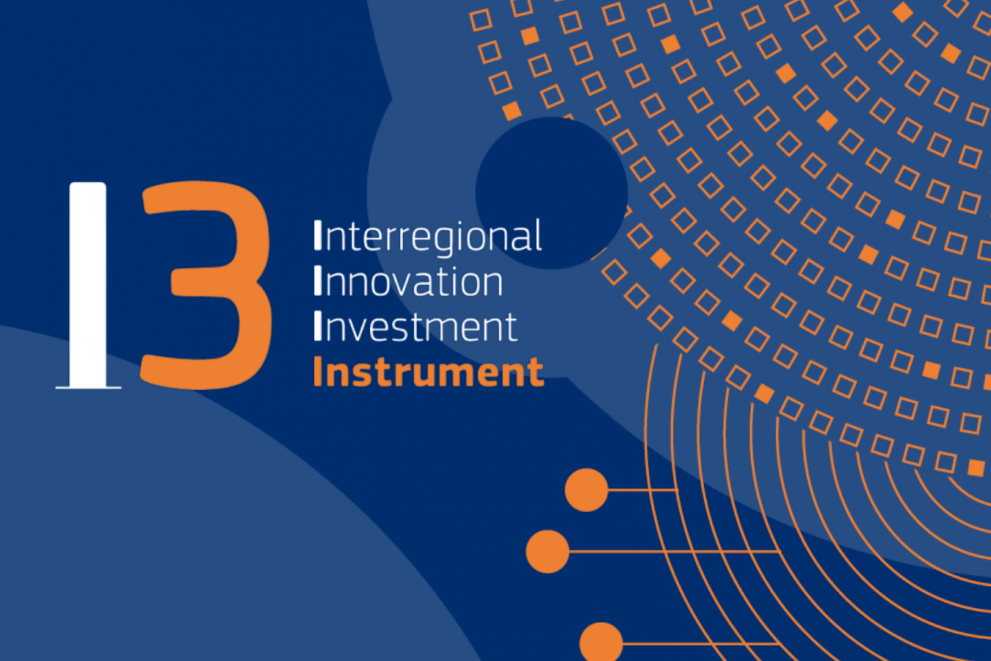The European Union (EU) supports the digital transformation of public administrations through various funding programmes. Here’s an overview of how the funding works, who funds what, and who the stakeholders are for key programmes:
- Digital Europe Programme (DEP) supports the development of digital infrastructure and skills, focusing on public administration efficiency and accessibility.
- Horizon Europe funds research and innovation projects to advance digital technologies and public services.
- Interreg promotes regional cooperation to enhance digital connectivity and innovation in public services.
- Interregional Innovation Investments (I3) Instrument supports interregional innovation projects in their commercialisation and scale-up phases.
- Technical Support Instrument (TSI) offers tailored technical support for designing and implementing digital reforms in public administrations.
- Connecting Europe Facility (CEF) improves digital networks and infrastructure, enhancing public administration services and connectivity.
Each programme contributes uniquely to the digital transformation of public administrations, supporting EU objectives of sustainable growth, competitiveness, and cohesion. For more detailed information, visit the European Commission's dedicated pages for these programmes.
Digital Europe Programme (DEP)
- Funding Source: The DEP is funded by the EU budget, with €7.6 billion allocated for 2021-2027.
- Stakeholders: Public administrations, industry, and research communities involved in digital transformation.
- Objectives: DEP aims to strengthen Europe’s digital capabilities by funding projects that develop digital infrastructure, enhance cybersecurity, and promote advanced digital skills. It supports public administrations in deploying AI, high-performance computing, and digital public services to improve efficiency and accessibility
Funding opportunities
- Objective: GovTech4All brings together 21 leading GovTech organizations from 14 European countries to establish a cohesive GovTech ecosystem and market. Through innovative approaches like startup challenges and forward-looking procurement, the initiative aims to revolutionize public sector technology. GovTech4All drives cross-border GovTech incubators and focuses on three key pilots: securing cross-border data, assisting citizens with digital benefits, and innovating public procurement.
- Type of action: Specific Grant Agreement under the Framework Partnership Agreement under the Digital Europe Work Programme 2023-2024.
- Beneficiaries: Government agencies: To benefit from such an opportunity, government agencies must be formally part of the Framework Partnership Agreement established for the incubator (Contact the Lisbon Council, coordinator of the initiative at: govtech4all@lisboncouncil.net). Start-ups: Through an innovative procurement method, startups will have the chance to tackle real-world challenges by participating in pilots.
- Opening date: It is permanently open for national digital agencies to join.
- More information: Click here
- Objective: This Call supports pilot projects that apply European Generative AI (GenAI) solutions in public administrations to improve services, streamline operations, and enhance citizen engagement. Tasks include developing, fine-tuning, and deploying GenAI models, ensuring solutions are trustworthy, explainable, and replicable across Member States. Projects must promote EU values, comply with the AI Act, and contribute to building a GenAI4EU community.
- Type of action: DIGITAL-GP DIGITAL Grants for Procurement
- Opening date: 15 April 2025
- Closing date: 02 September 2025 17:00:00 Brussels time
- More information
- Objective: This Call supports pilot projects that automate and streamline regulatory reporting by using advanced digital technologies. Tasks include developing solutions for automatic data capture, real-time compliance checks, secure data sharing, and integration with regulatory authorities. Projects must deliver operational pilots, promote open-source and interoperable systems, and demonstrate how automation can reduce administrative burden for public administrations and businesses, especially SMEs.
- Type of action: DIGITAL-SIMPLE DIGITAL Simple Grants
- Opening date: 15 April 2025
- Closing date: 02 September 2025 17:00:00 Brussels time
- More information
- Objective: This Call supports the creation of an AI Skills Academy to boost Europe’s talent pool in AI and GenAI technologies. Tasks include developing academic curricula, short-term training for sector specialists, and educational initiatives for citizens and teachers. Projects should focus on AI model development, deployment, and the use of AI-dedicated supercomputers, while promoting cooperation with AI Factories, EuroHPC facilities, and other EU initiatives.
- Type of action: DIGITAL-LS DIGITAL Lump Sum Grants
- Opening date: 15 April 2025
- Closing date: 02 September 2025 17:00:00 Brussels time
- More information
- Objective: This Call supports the consolidation of the European Digital Innovation Hubs (EDIHs) network to drive digital transformation in SMEs, mid-caps, and public sector organisations. Tasks include offering AI-focused services, skills development, testing facilities, financing support, and innovation networking. EDIHs must promote interoperability, collaborate with AI Factories, HPC centers, and other EU initiatives, and foster the adoption of human-centric and sustainable digital technologies across Europe.
- Type of action: DIGITAL-SIMPLE DIGITAL Simple Grants
- Opening date: 15 April 2025
- Closing date: 02 September 2025 17:00:00 Brussels time
- More information
- Objective: This Call supports the creation of a Virtual Worlds Skills Academy to strengthen Europe's talent pool in areas such as extended reality, AI, 3D graphics, and digital twins. Tasks include developing academic curricula, short-term training for specialists, and education initiatives for citizens. Projects should foster collaboration between academia, industry, and research, while promoting diversity, inclusion, and broad access to virtual worlds technologies across sectors.
- Type of action: DIGITAL-LS DIGITAL Lump Sum Grants
- Opening date: 15 April 2025
- Closing date: 02 September 2025 17:00:00 Brussels time
- More information
- Objective: This Call supports the continued operation of the Data Spaces Support Centre (DSSC) to coordinate, support, and promote the development of interoperable, secure, and trusted European data spaces. Tasks include community building, defining common standards and governance models, and maintaining a knowledge-sharing platform. The DSSC will foster cross-sector collaboration and help ensure that data spaces benefit European businesses, public administrations, and SMEs.
- Type of action: DIGITAL-CSA DIGITAL Coordination and Support Actions
- Opening date: 15 April 2025
- Closing date: 02 September 2025 17:00:00 Brussels time
- More information
- Objective: This Call supports cybersecurity innovation projects by Luxembourg-based SMEs and start-ups. Tasks include developing or adopting cybersecurity solutions that strengthen local expertise and market capacity. Projects will undergo technical and administrative evaluation, and selected applicants will receive national R&D funding through the LU-CID programme.
- Opening date: 01 April 2025
- Closing date: 21 July 2025 17:00 (Brussels time)
- More information
- Objective: This call supports the operation of National Coordination Centres (NCCs) to strengthen cybersecurity capacity across Europe. Activities may include supporting cybersecurity startups and SMEs, promoting awareness and education, hosting platforms for cybersecurity solutions, and facilitating stakeholder engagement in EU cybersecurity initiatives. NCCs can tailor their participation based on national priorities.
- Type of action: DIGITAL-JU-SIMPLE DIGITAL JU Simple Grants
- Opening date: 12 June 2025
- Closing date: 07 October 2025 17:00:00 Brussels time
- More information
- Objective: Several calls support the mission of the EU Code Week (from 11 to 26 October 2025), that aims to promote coding, computational thinking, and digital skills across Europe.
- Opening date: May 2025
- Closing date: July – August 2025
- Objective: The objective of the CODE4PORTUGAL contest is to foster creativity and the development of programming skills, encouraging participants to create innovative solutions to specific problems through the use of coding technologies.
- Opening date: 02 June 2025
- Closing date: 02 August 2025 23:59 (Brussels time)
- More information
- Objective: The purpose of this call is to identify and support bottom-up initiatives that concern coding and aim to generate an impact aligned with the mission of the EU Code Week: to enhance the digital skills of young people, especially girls.
- Opening date: 02 June 2025
- Closing date: 01 August 2025 23:59 (Brussels time)
- More information
- Objective: The purpose of this call is to identify and support bottom-up initiatives that concern coding and aim to generate an impact aligned with the mission of the EU Code Week: to enhance the digital skills of young people, especially girls.
- Opening date: 06 June 2025
- Closing date: 06 August 2025 23:59 (Brussels time)
- More information
- Objective: The purpose of this Call for Grants is to identify and support impactful grassroots coding projects aligned with EU Code Week’s mission to promote coding, computational thinking, and digital skills across Europe.
- Opening date: 06 June 2025
- Closing date: 22 August 2025 17:00 (Brussels time)
- More information
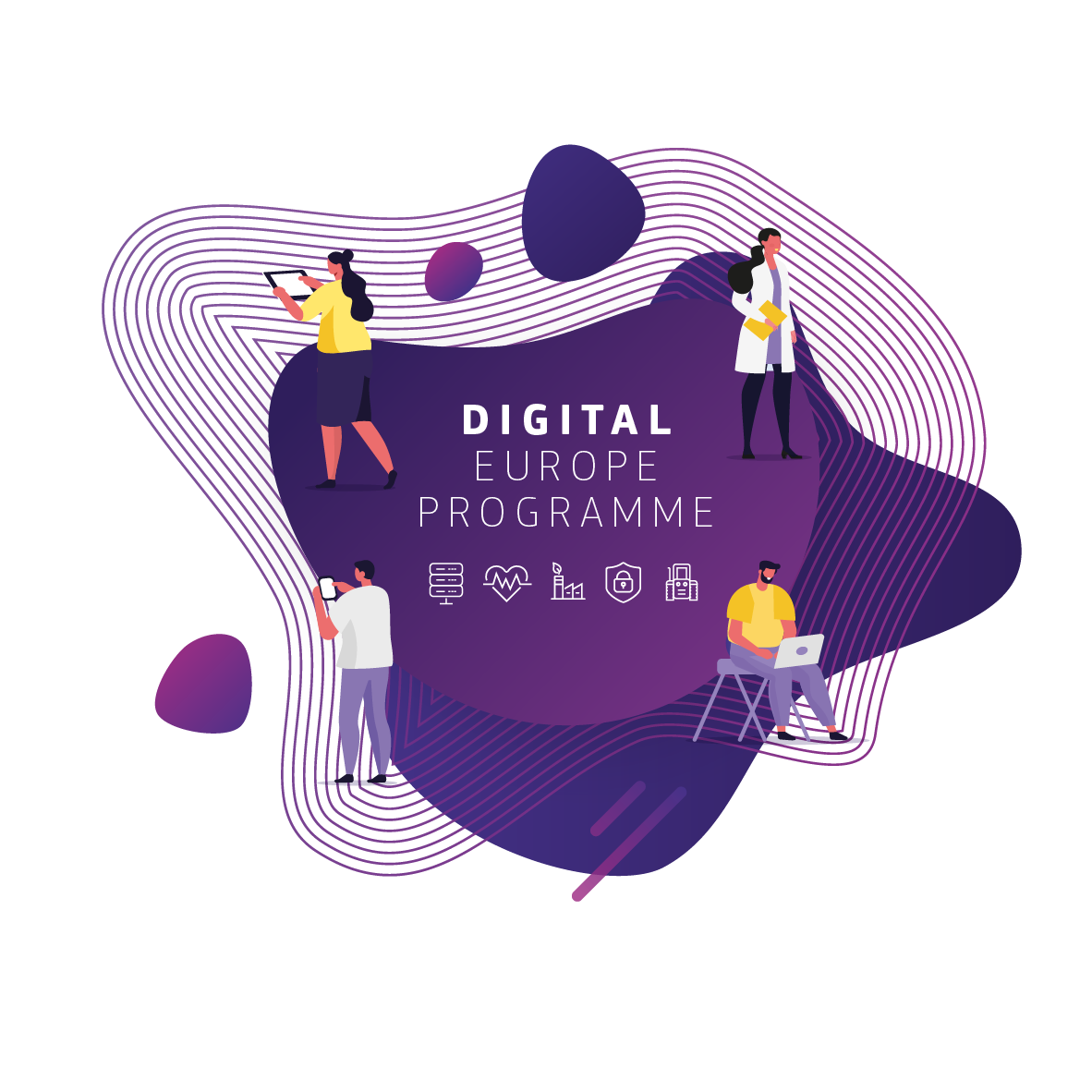
Horizon Europe
- Funding Source: Horizon Europe is the EU’s main funding programme for research and innovation, with over €95 billion for 2021-2027.
- Stakeholders: Researchers, universities, research organizations, SMEs, public authorities, and private sector entities.
- Objectives: Horizon Europe promotes scientific excellence and innovation, addressing societal challenges and fostering economic growth. It supports projects that advance digital technologies, enhance public services, and improve administrative processes.
- Objective: This call focuses on AI-assisted automation in software engineering. Projects should develop advanced AI tools, including generative AI, to optimise engineering tasks such as modelling, control, data management, and legacy system integration. The goal is to create an open and extensible AI-assisted platform that integrates with existing tools and supports multi-domain collaboration.
- Opening date: 04 March 2025
- Closing date: 17 September 2025 17:00:00 Brussels time
- More Information
- Objective: This action is intended to create connected regional innovation valleys across the European Union (EU), involving regions with lower innovation performances, by building on strategic areas of regional strength and specialisation (defined in their smart specialisation strategies), in support of key EU priorities. Regions represented by successful applicant national or regional authorities under this call will be recognised as “regional innovation valleys”.
- Type of action: HORIZON-COFUND HORIZON Programme Cofund Actions
- Opening date: 14 May 2025
- Closing dates: 15 October 2025 17:00:00 Brussels time
- More Information
- Objective: The topic aims at networking and activities towards better connected and more efficient and inclusive innovation ecosystems. This includes all relevant key stakeholders of innovation ecosystems including public sector, private sector, research and Innovation actors and networks, as well as the civil society organisations, social innovators, NGOs.
- Type of action: HORIZON-CSA HORIZON Coordination and Support Actions
- Opening date: 14 May 2025
- Closing dates: 15 October 2025 17:00:00 Brussels time
- More Information
- Objective: This Call supports the development of generative AI-powered digital twins for research infrastructures, targeting sectors such as healthcare, transport, environment, and manufacturing. Projects must build on existing AI models and scientific data to simulate complex systems, support new research methods, and align with EU initiatives like GenAI4EU, Apply AI, and Destination Earth. Solutions should enhance the services and societal impact of European research infrastructures.
- Type of action: HORIZON-RIA HORIZON Research and Innovation Actions
- Opening date: 06 May 2025
- Closing dates: 18 September 2025 17:00:00 Brussels time
- More Information
- Objective: This Call supports the development of AI-powered tools that enable localised impact assessments based on large-scale digital twin simulations. Projects must integrate generative AI models, real-time data, and user-friendly interfaces to help policymakers and non-experts make informed decisions. Solutions should align with EU initiatives like GenAI4EU, Destination Earth, and Apply AI, and demonstrate interoperability with existing digital twins, data services, and research infrastructures.
- Type of action: HORIZON-RIA HORIZON Research and Innovation Actions
- Opening date: 06 May 2025
- Closing dates: 18 September 2025 17:00:00 Brussels time
- More Information
- Objective: The scope of this call is to demonstrate and foster the use of Generative AI for Scientific Research, in line with the GenAI4EU initiative and other key EU initiatives, like the Apply AI strategy, throughout the research data lifecycle supported by EOSC. Generative AI can be used for activities such as writing, data generation and analysis, reporting and many others, for improving productivity.
- Type of action: HORIZON-RIA HORIZON Research and Innovation Actions
- Opening date: 06 May 2025
- Closing dates: 18 September 2025 17:00:00 Brussels time
- More Information
- Objective: This Call supports small to medium R&D projects aimed at enhancing the Fediversity platform, a cloud services initiative based on NixOS to deliver secure, user-friendly, and self-hosted internet services. Solutions should address deployment challenges, improve service portability, and boost community-driven, open-source alternatives to mainstream hosted platforms.
- Opening date: 01 June 2025
- Closing date: 01 August 2025 12:00 (Brussels time)
- More information
- Objective: This Call funds R&D projects that contribute to NGI TALER, a free and open-source software (FOSS) digital payment system based on the GNU project. Grants of €5,000–€50,000 support new features, integrations, or enhancements to GNU Taler itself or related FOSS tools, aiming to create fair, secure, and inclusive online payment solutions. Projects must be open source and empower users, advancing European digital sovereignty and sustainable online economies.
- Opening date: 01 June 2025
- Closing date: 01 August 2025 12:00 (Brussels time)
- More information
- Objective: This Call funds R&D projects that support the NGI0 Commons Fund, co-funded by the EU and Switzerland. Grants support the development and expansion of free and open-source software (FOSS), open data, standards, and other shared digital resources. Projects must promote interoperability, data sovereignty, and digital sustainability, addressing key challenges like secure and resilient internet infrastructure and enabling new technologies (including generative AI and virtual worlds).
- Opening date: 01 June 2025
- Closing date: 01 August 2025 12:00 (Brussels time)
- More information
- Objective: This Call funds R&I projects to develop low-to-mid TRL (Technology Readiness Level) building blocks for next-generation space transportation solutions, focusing on digitalisation and AI integration for launch services. The projects aim to advance health monitoring, high-speed data feeds, autonomous avionics, and eco-design tools for sustainable, competitive, and efficient launch systems. Proposals should leverage European components and ensure complementarity with existing EU and ESA-funded initiatives.
- Opening date: 22 May 2025
- Closing date: 25 September 2025 17:00:00 Brussels time
- More information
- Objective: This Call funds the development and testing of artificial intelligence (AI)-based tools for pandemic preparedness and response in Europe. Projects should focus on real-time data integration and disease monitoring, leveraging findable, accessible, interoperable, and reusable (FAIR) datasets, ethical AI practices, and close collaboration with end-users, while addressing trustworthiness and societal challenges.
- Opening date: 22 May 2025
- Closing date: 16 September 2025 17:00:00 Brussels time
- More information
- Objective: This Call funds the creation of a pioneering federated digital infrastructure for advanced materials research and development in Europe. The project will connect existing and new national digital infrastructures, enabling seamless access to findable, accessible, interoperable, and reusable (FAIR) data and AI-powered tools for researchers and innovators. The project will also develop long-term governance and sustainability plans, deliver use cases demonstrating industrial applications, and coordinate with European and national initiatives.
- Opening date: 22 May 2025
- Closing date: 23 September 2025 17:00:00 Brussels time
- More information
- Objective: This Call supports the coordination and professionalisation of National Contact Points (NCPs) for EU civil security research. It aims to improve NCP services across Europe, enhance cooperation with national security research communities, and reduce fragmentation by linking national and EU initiatives (notably through the Community for European Research and Innovation for Security – CERIS). Activities include matchmaking, promoting funding uptake, sharing best practices, and boosting the visibility of security research outcomes.
- Opening date: 12 June 2025
- Closing date: 12 November 2025 17:00:00 Brussels time
- More information
- Objective: This Call supports the creation of a secure, EU-wide research data repository for security and disaster risk. Building on the roadmap from the Large-scale Aggregation of Governmental Operations (LAGO) project, it will enable researchers, practitioners, and policymakers to store, access, and re-use realistic, high-quality training and testing datasets. The repository will ensure interoperability with platforms like the European Open Science Cloud (EOSC), comply with data protection and ethical standards, and be structured around the Findable, Accessible, Interoperable and Reusable (FAIR) principles.
- Opening date: 12 June 2025
- Closing date: 12 November 2025 17:00:00 Brussels time
- More information
- Objective: This Call supports the development of AI-powered cybersecurity tools using Generative AI. Projects should focus on detecting and responding to cyber threats, improving authentication, and supporting compliance with EU cybersecurity regulations. The goal is to strengthen the EU’s cybersecurity capabilities while ensuring alignment with legal and ethical standards.
- Opening date: 12 June 2025
- Closing date: 12 November 2025 17:00:00 Brussels time
- More information
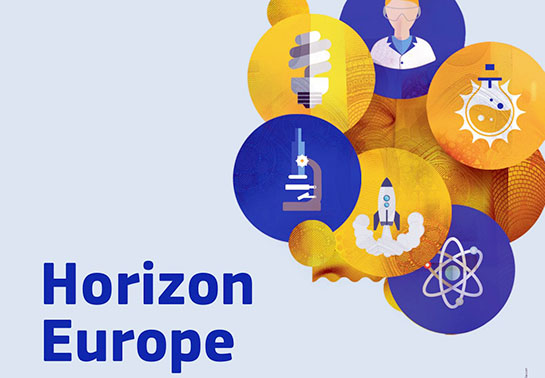
Technical Support Instrument (TSI)
- Funding Source: TSI is funded through the EU budget under DG REFORM, with a focus on supporting structural reforms.
- Stakeholders: National and regional authorities of EU Member States, experts from Member States' administrations, international organisations, private firms, and consultants.
- Objectives: TSI provides tailored technical expertise to help Member States design and implement digital reforms. It supports projects that enhance digital governance, modernise public administration, and improve public service delivery through the adoption of digital technologies.
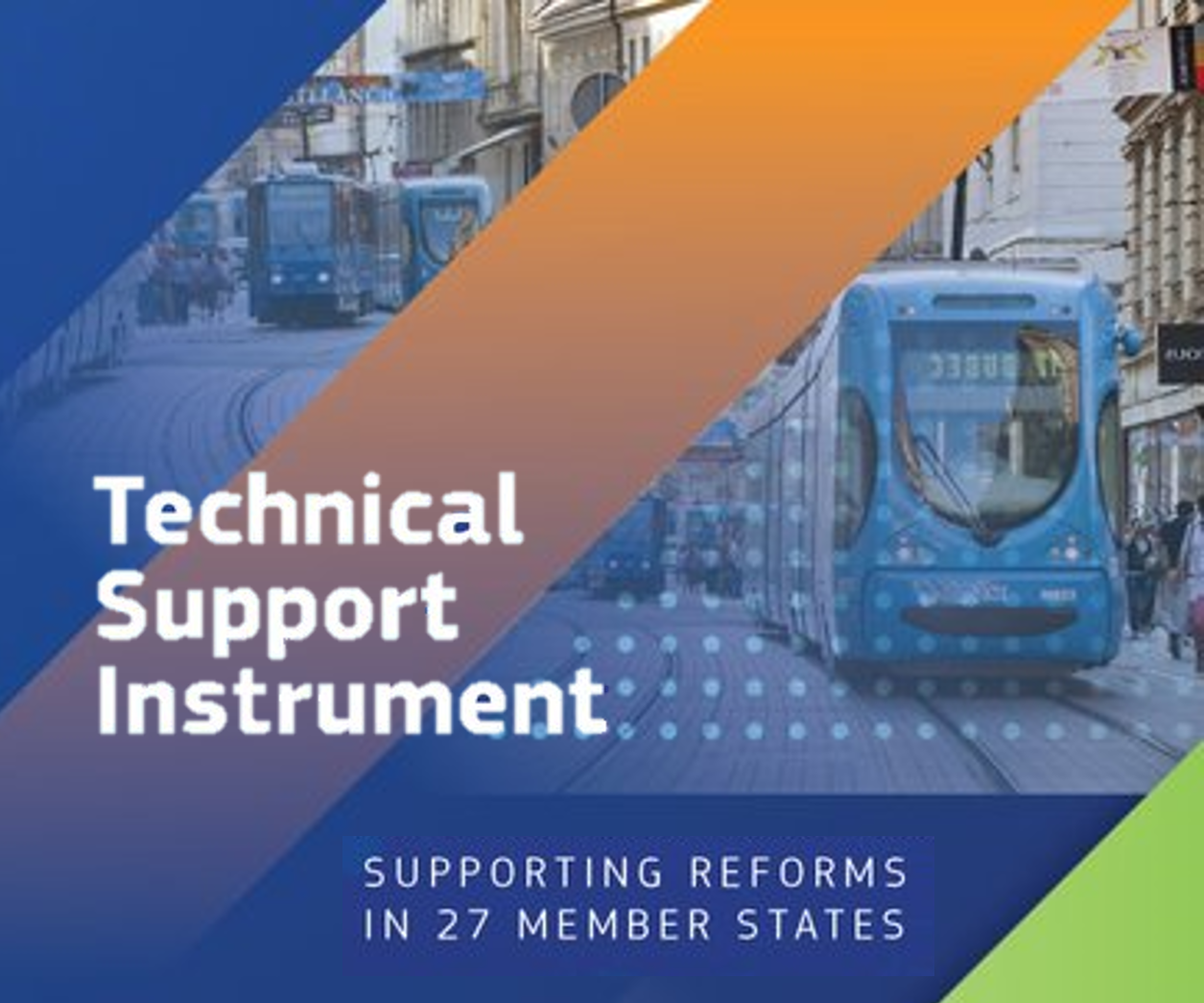
Interreg
- Funding Source: Interreg is financed through the European Regional Development Fund (ERDF) and other EU instruments.
- Stakeholders: Regional and local authorities, public bodies, NGOs, and businesses.
- Objectives: Interreg promotes cross-border, transnational, and interregional cooperation. It funds projects that enhance digital connectivity and innovation in public administrations, facilitating collaboration and knowledge sharing across regions to address common challenges and improve public service delivery.
Funding opportunities
To check if your project is eligible for funding from Interreg Europe visit Interregeurope.eu
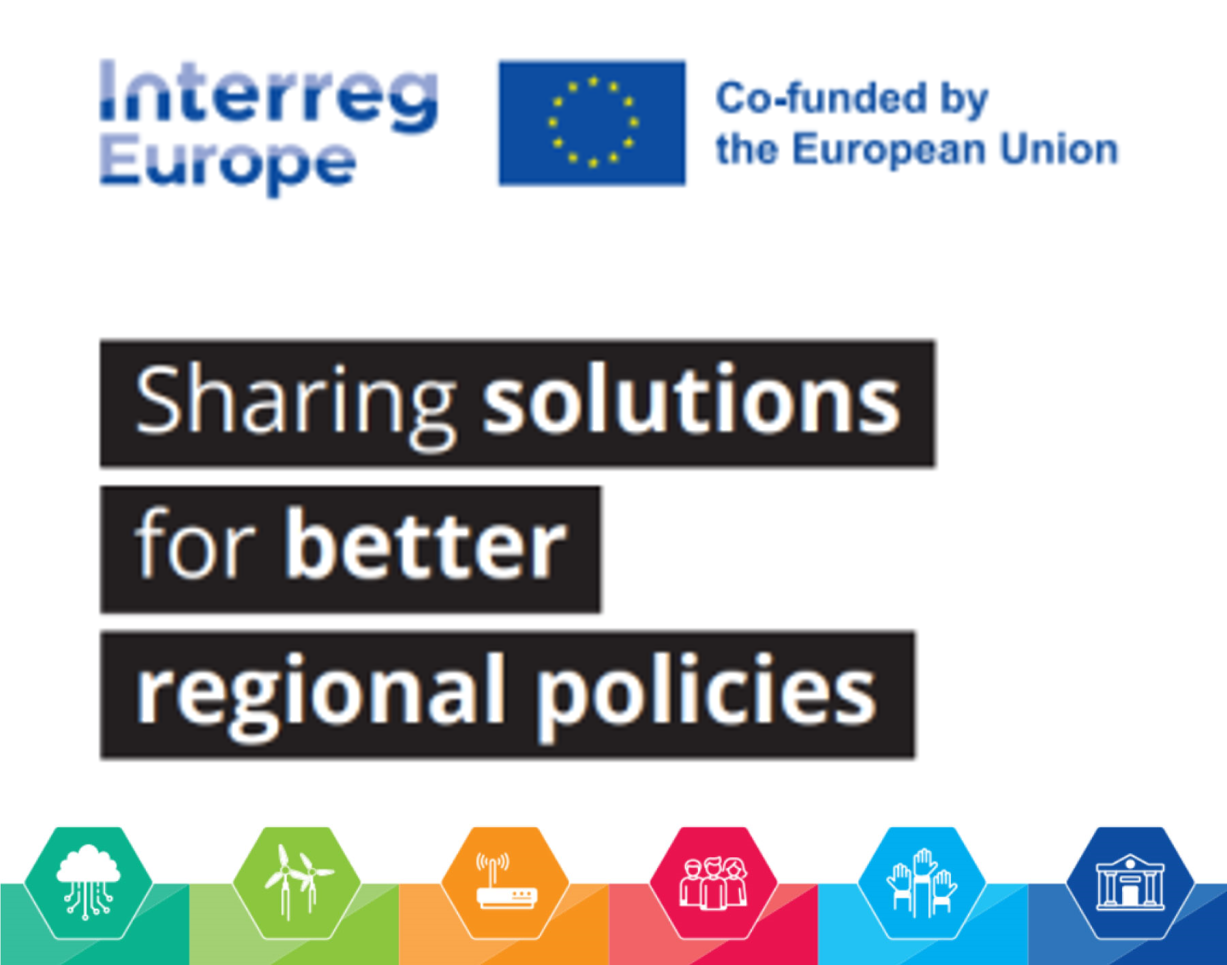
Interregional Innovation Investments (I3) Instrument
The European Innovation Council and SMEs Executive Agency (EISMEA), in collaboration with DG REGIO, has launched the Interregional Innovation Investments (I3) Support Facility to enhance interregional innovation and support the objectives of the I3 Instrument. This initiative will provide technical support, matchmaking, policy guidance, and capacity-building tools to help stakeholders develop strong innovation ecosystems and integrate into European value chains. Discover more about this initiative here.
- Objective: The aim of this call is to accelerate market uptake of research results and boost regional innovation ecosystems. The 2023-2024 programme supports investment-ready projects, value chain development in less developed regions, and capacity-building for interregional innovation.
- Investment Call Strand 1: Opening planned on 22 May 2025 and closing on 20 November 2025.
- Investment Call Strand 2a: Opening planned on 22 May 2025 and closing on 20 November 2025.
- Final Capacity Building Call Cap2b: Opening planned on 23 October 2025 and closing on 19 March 2026.
Funding opportunities
- Objective: This Call supports the implementation of interregional innovation projects to support the digital transition, green transition, or smart manufacturing. It aims to bring mature innovations (starting from at least Technology Readiness Level 6) closer to commercialisation and market uptake by supporting consortia of businesses, research institutions, public administrations, and civil society actors. The call seeks to strengthen EU value chains, promote innovation diffusion (especially in less developed regions), and foster digital transformation, sustainability, and competitiveness across Europe.
- Opening date: 22 May 2025
- Closing date: 13 November 2025 17:00:00 Brussels time
- More information
- Objective: This Call supports the implementation of interregional innovation projects (starting from Technology Readiness Level 6) to help scale up and commercialise new digital, green, or smart manufacturing solutions. It specifically targets less developed and transition regions, supporting them to integrate into EU value chains, improve competitiveness, and strengthen regional cooperation. Projects will receive financial and advisory support to test and demonstrate market-ready innovations, create new value chains, and promote collaboration between innovation actors (companies, research centres, public authorities, civil society).
- Opening date: 22 May 2025
- Closing date: 13 November 2025 17:00:00 Brussels time
- More information
Connecting Europe Facility (CEF)
- Funding Source: CEF is funded by the EU budget, with €33.7 billion for 2021-2027.
- Stakeholders: Public authorities, infrastructure operators, and private entities in the transport, energy, and digital sectors.
- Objectives: CEF aims to enhance EU connectivity and infrastructure by funding projects that develop and modernize digital networks. It supports public administrations in deploying high-speed broadband, digital public services, and secure digital infrastructures to improve administrative efficiency and citizen engagement
- Source: Connecting Europe Facility - Digital
Funding opportunities
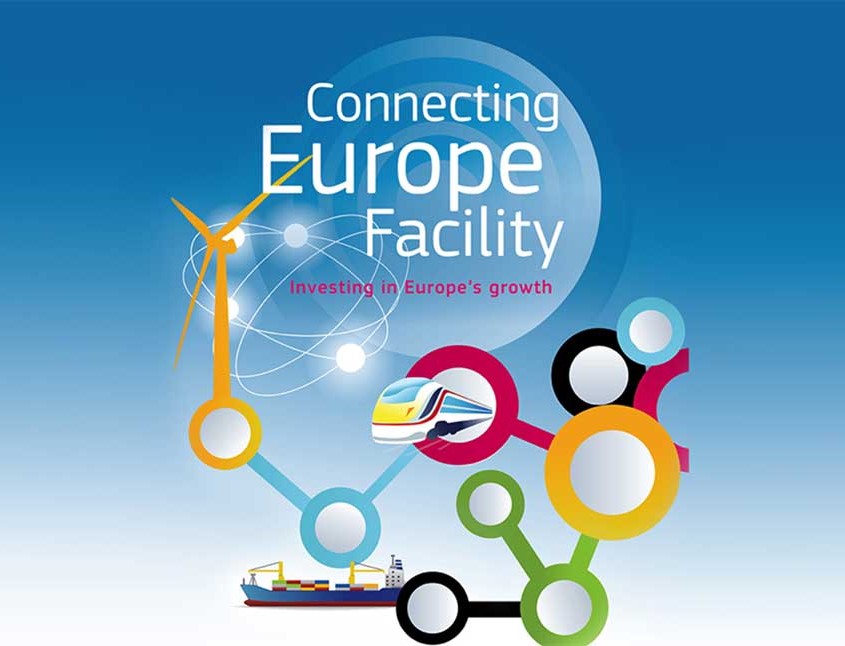
Procurements
Please revisit soon for forthcoming updates.
Description of the European funding types
Pre-Commercial Procurement (PCP) Overview
PCP is a procurement method used by public sector organizations to develop innovative solutions. Funded by the European Commission, it progresses through three main phases, each with distinct funding levels and objectives.
PCP operates as a two-level funding program:
- EU Funds to Consortiums:
- The European Commission provides grants to consortiums, which typically include public sector procurers and other partners.
- These consortiums manage the overall PCP process and ensure the coordination and implementation of the project.
- Cascade Funding to Other Beneficiaries:
- The consortiums, in turn, distribute funds (cascade funding) to selected suppliers and innovators (other beneficiaries) who participate in the different phases of the PCP.
- This structure allows the consortium to fund multiple suppliers at various stages of solution development and testing.
- Solution Exploration (Phase 1):
- Objective: Assess feasibility of proposed solutions.
- Activities: Feasibility studies and initial designs by multiple suppliers.
- Funding: €10,000 - €50,000 per supplier.
- Funded by: The consortiums (main beneficiaries of the grants) distribute the funds provided by the European Commission to public sector procurers.
- Beneficiaries: Suppliers and innovators conducting feasibility studies.
- Targeted Suppliers: Startups, SMEs, research institutions, and innovative tech firms.
- Prototyping (Phase 2):
- Objective: Develop and test prototypes.
- Activities: Prototype development and initial testing.
- Funding: €50,000 - €200,000 per supplier.
- Funded by: The consortiums distribute the funds provided by the European Commission to selected suppliers from Phase 1.
- Beneficiaries: Selected suppliers developing prototypes.
- Targeted Suppliers: SMEs, research institutions, and specialized tech firms with proven feasibility studies.
- Original Development and Testing (Phase 3):
- Objective: Refine and test prototypes in real-world conditions.
- Activities: Extensive development and field testing.
- Funding: €200,000 - €2,000,000 per supplier.
- Funded by: The consortiums distribute the funds provided by the European Commission to the most promising prototypes.
- Beneficiaries: Suppliers conducting development and real-world testing of prototypes.
- Targeted Suppliers: Established tech firms, consortiums of SMEs and research institutions, and innovators with successful prototypes.
The primary beneficiaries of PCP grants are public sector organizations, often referred to as "contracting authorities." These include:
- Government Departments: National, regional, or local government bodies seeking innovative solutions for public services.
- Healthcare Providers: Hospitals and health authorities aiming to improve medical technologies and healthcare services.
- Public Utilities: Organizations managing public infrastructure like water, energy, and transportation networks.
- Research Institutions and Universities: Often involved as partners or sub-contractors to provide expertise and support in the R&D process.
PCP drives innovation, enhances public services, and fosters collaboration between the public sector and innovative suppliers, ultimately benefiting citizens and the economy.
For more information, visit the European Commission's PCP page.
Financial Support to Third Parties (FSTP) Overview
FSTP is a mechanism used by the European Commission to provide financial support to third parties (typically SMEs, startups, or other organizations) through intermediaries like consortiums or larger projects. This approach allows for more targeted and effective distribution of funds to promote innovation and address specific challenges.
FSTP operates as a two-level funding program:
- EU Funds to Intermediaries:
- The European Commission provides grants to intermediaries, such as consortiums, projects, or larger organizations.
- These intermediaries manage the overall process and ensure the coordination and implementation of the funding program.
- Cascade Funding to Third Parties:
- The intermediaries distribute funds (cascade funding) to selected third parties (beneficiaries) who carry out specific projects or activities.
- This structure allows intermediaries to fund multiple third parties, enabling targeted support for innovation and project development.
- Call for Proposals:
- Objective: Identify and select third parties for funding.
- Activities: Intermediaries issue calls for proposals to attract innovative projects and solutions.
- Funding: Variable amounts based on the scope and objectives of the call.
- Beneficiaries: Third parties carrying out the funded projects.
- Funded by: The intermediaries distribute the funds provided by the European Commission.
- Beneficiaries: Selected third parties (SMEs, startups, research institutions) submitting proposals.
- Targeted Suppliers: Startups, SMEs, research institutions, and innovative tech firms.
- Benefits of FSTP
- Simplified Process: Reduced administrative burden for smaller entities compared to traditional EU funding.
- Targeted Support: Focus on specific innovation and development goals, aligning with broader EU strategic objectives.
- Flexibility: Funding can take various forms, including grants, vouchers for services, and access to testing facilities.
The primary beneficiaries of FSTP funds are third parties that participate in the program. These include:
- Startups: Early-stage companies developing innovative solutions.
- SMEs: Small and medium-sized enterprises working on projects that address specific challenges.
- Research Institutions and Universities: Often involved as partners or sub-contractors to provide expertise and support in the development and implementation of projects.
- Innovative Tech Firms: Companies with the capability to develop and implement cutting-edge technologies.
FSTP promotes innovation, supports the growth of SMEs and startups, and fosters collaboration between intermediaries and third parties. It helps bridge the gap between initial research and full-scale implementation, ultimately benefiting the broader economy and society.
For more information, visit the European Commission's FSTP page.
Simple Grants in the Digital Europe Programme
The Digital Europe Programme supports the digital transformation of Europe by providing funding through Simple Grants. These grants offer direct financial support to projects in key digital areas. For more information, visit the European Commission's Digital Europe Programme page.
- Direct Funding: Non-repayable grants for specific digital projects.
- Targeted Objectives: Focus on AI, cybersecurity, digital skills, high-performance computing (HPC), and digital innovation hubs.
- Eligible Beneficiaries: Open to public and private entities, including SMEs, startups, research institutions, and public administrations.
- Application Process: Regular calls for proposals; applicants submit project plans with objectives, activities, and budgets.
- Evaluation and Selection: Proposals evaluated on relevance, innovation, impact, and feasibility.
- Co-Funding Levels: The European Commission typically co-funds up to 50% of the project costs, though this can vary depending on the specific call and project requirements.
- Promotes Innovation: Stimulates development and deployment of digital technologies.
- Enhances Competitiveness: Boosts the competitiveness of European businesses.
- Fosters Collaboration: Encourages partnerships across sectors and countries.
- Addresses Challenges: Tackles societal issues like digital inclusion and cybersecurity.
Grants for Procurement in the Digital Europe Programme
The Digital Europe Programme supports the digital transformation of Europe by providing funding through grants for procurement. These grants are designed to finance the procurement of digital solutions and services that meet specific public sector needs. For more information, visit the European Commission's Digital Europe Programme page.
- Direct Funding: Non-repayable grants to support the procurement of digital solutions and services.
- Targeted Objectives: Focus on AI, cybersecurity, digital skills, high-performance computing (HPC), and digital innovation hubs.
- Eligible Beneficiaries: Open to public sector entities, including government departments, municipalities, healthcare providers, and public utilities.
- Application Process: Regular calls for proposals; public sector entities submit project plans detailing their procurement needs, expected outcomes, and budgets.
- Evaluation and Selection: Proposals evaluated based on relevance to the call objectives, innovation potential, impact, and implementation feasibility.
- Co-Funding Levels: The European Commission typically co-funds up to 50% of the procurement costs, though this can vary depending on the specific call and project requirements.
- Promotes Innovation: Encourages the adoption of cutting-edge digital solutions in the public sector.
- Enhances Public Services: Improves the efficiency and effectiveness of public services through advanced digital technologies.
- Fosters Collaboration: Supports partnerships between public sector entities and innovative suppliers.
- Addresses Challenges: Helps tackle key public sector challenges like digital inclusion, cybersecurity, and service modernization.
Technical Support Instrument (TSI) Funding Overview
The Technical Support Instrument (TSI) is a European Union (EU) program designed to provide tailored technical expertise to EU Member States to support the design and implementation of reforms. The TSI helps enhance the administrative capacity and efficiency of public administrations, contributing to a more effective implementation of EU policies and funds. For more information, visit the European Commission's TSI page.
- The European Commission directly funds technical support projects.
- Funding covers the costs of technical assistance, including expertise, studies, training, and other capacity-building activities.
- Request Submission: EU Member States submit requests for technical support to the European Commission. These requests are typically aligned with national reform priorities and EU policy objectives.
- Proposal Evaluation: The European Commission evaluates the requests based on criteria such as relevance, impact, and feasibility. The selection process ensures that the support addresses key reform needs and has a high potential for successful implementation.
- Approval and Implementation: Once approved, the European Commission works with the Member State to implement the technical support project. This involves deploying experts, conducting studies, organizing training sessions, and other relevant activities.
- The TSI provides support in various policy areas, including public administration reform, financial management, healthcare, education, labor markets, and digital transformation.
- Projects are designed to align with both national reform agendas and broader EU priorities, such as the Green Deal, digitalisation, and economic resilience.
- Expertise and Consultancy: Provision of experts to offer technical advice and consultancy services to public administrations.
- Studies and Analysis: Conducting studies and analyses to inform policy decisions and reform strategies.
- Training and Capacity Building: Organizing training programs and workshops to enhance the skills and capabilities of public officials.
- Peer Learning and Exchange: Facilitating peer learning and exchange of best practices among Member States.
- No Direct Funding to Member States: The European Commission covers the full cost of the technical support provided under the TSI. Member States do not receive direct financial transfers or funding.
- Commission-Funded Projects: The technical support is funded directly by the European Commission and managed through projects implemented in collaboration with the Member States.
- Enhanced Capacity: Builds the administrative capacity of public administrations to implement reforms effectively.
- Expert Support: Provides access to high-quality technical expertise and best practices.
- Alignment with EU Priorities: Ensures that national reforms are aligned with EU policy objectives and contribute to overall EU goals.
- No Co-Financing Required: Full funding by the European Commission reduces the financial burden on Member States, as they do not need to provide co-financing or direct funds for the support projects.

